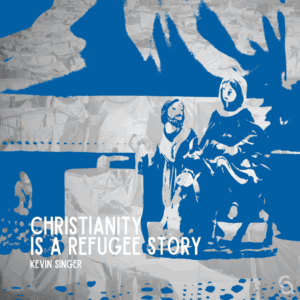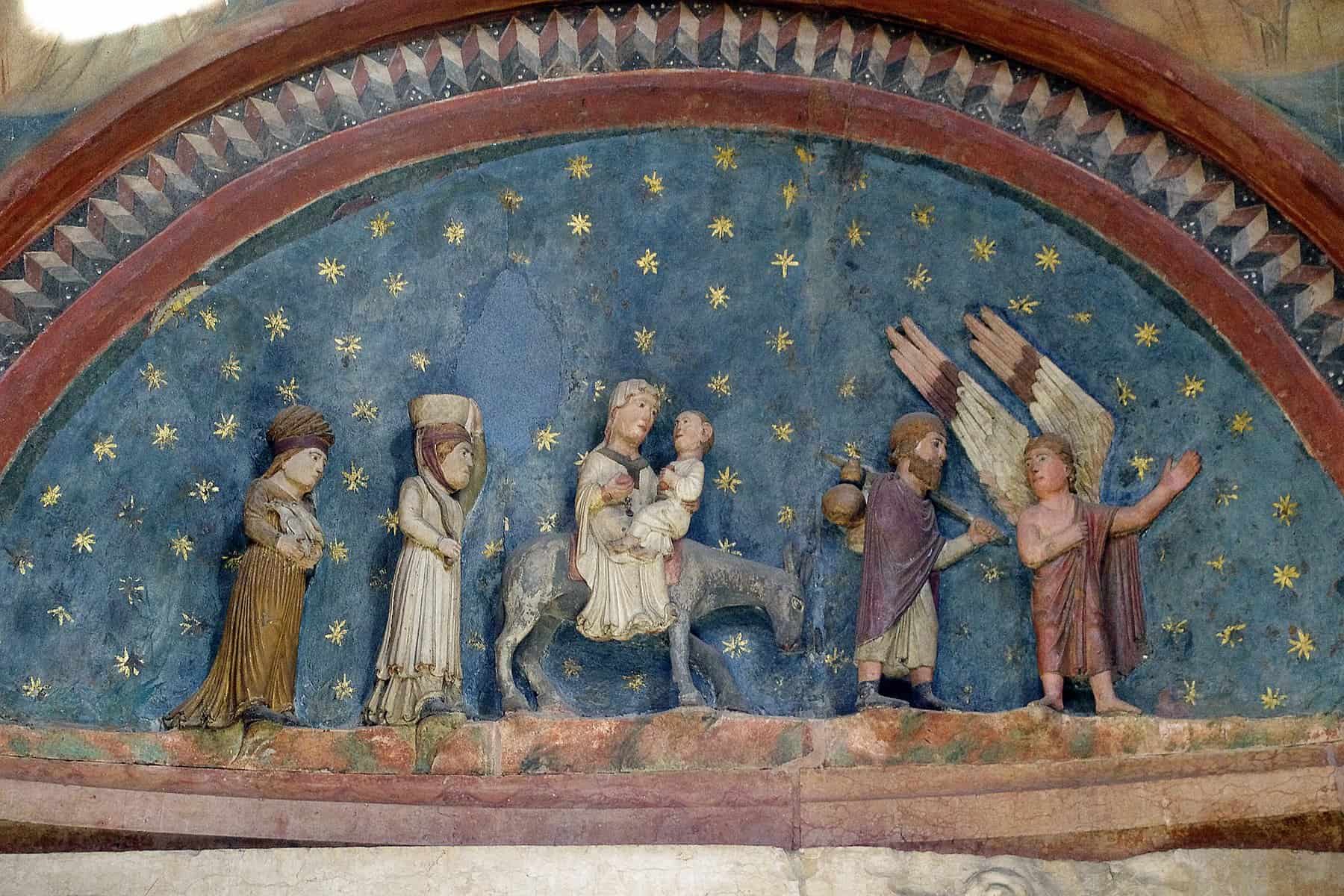 If you are a Christian, you are part of a refugee story. You join the ranks of Abraham, who took a dangerous journey from his homeland of Ur to the land of Canaan; Joseph, who was carried into Egypt after being sold into slavery by his brothers; and Moses, who fled to the wilderness of Midian after he took the life of a brutal Egyptian slave master. Each acknowledged that they were “strangers and exiles on the earth.” Jesus Himself was at one time refugee in Egypt, and the Apostle Paul reminded the Philippians that their citizenship is in heaven.
If you are a Christian, you are part of a refugee story. You join the ranks of Abraham, who took a dangerous journey from his homeland of Ur to the land of Canaan; Joseph, who was carried into Egypt after being sold into slavery by his brothers; and Moses, who fled to the wilderness of Midian after he took the life of a brutal Egyptian slave master. Each acknowledged that they were “strangers and exiles on the earth.” Jesus Himself was at one time refugee in Egypt, and the Apostle Paul reminded the Philippians that their citizenship is in heaven.
The entire Biblical narrative of God’s people is one of chronic exile. It began when Adam and Eve were forced to leave the Garden of Eden and face the uncertainties of life outside. Before God delivered the Promised Land to His chosen people, due to famine, they arrived as refugees in Egypt. After hundreds of years of slavery, the Israelites were liberated by God, only to then be refugees for another 40 years in the desert. Then came exile in Babylon and exile in Assyria.
Fast-forward to the New Testament, where after the resurrection of Christ, it wasn’t long before the early church was forced to disperse from Jerusalem because of Saul’s oppression and the martyrdom of Stephen. The New Testament contains letters written by James and Peter that are addressed to “the twelve tribes in dispersion” and “to those who are elect exiles of the Dispersion in Pontus, Galatia, Cappadocia, Asia, and Bithynia.” In his second letter to the Corinthians, Paul describes in vivid detail the pains of exile and offers a word of hope:
We are hard pressed on every side, but not crushed; perplexed, but not in despair; persecuted, but not abandoned; struck down, but not destroyed…So we fix our eyes not on what is seen, but on what is unseen, since what is seen is temporary, but what is unseen is eternal.
The unseen Paul is referring to is “the eternal weight of glory beyond all comparison,” or what the author of Hebrews calls the “city with foundations” that Abraham looked forward to, “whose architect and builder is God.” The logic from here is clear: if Christians are sons and daughters of Abraham, then they, like Abraham, are strangers and exiles on the earth who look forward to their glorious heavenly home.

What this means is that the refugee experience has greater relevance to Christians than some might assume. Even one of the most famous figures in the history of the Church, John Calvin, was a refugee who experienced exile and a longing for his homeland. Calvin was forced to flee his home in Paris after it was discovered that he opposed Catholic teaching. From that point on, all of the cities where Calvin lived and ministered—Basel, Geneva, and Strasbourg—were hubs for Protestant refugees fleeing from Roman Catholic persecution.
In Strasbourg, Calvin would become the minister of a French refugee congregation of four to five hundred members whom he welcomed with open arms. However, this doesn’t mean that these cities always welcomed him with open arms. Genevans feared that immigrants would become permanent residents, upset the power structure of the city, and raise the cost of living. The earliest official reference to Calvin in Genevan records is “The Frenchman”—he wasn’t even assigned a name. This suggests that the Genevans may have reacted negatively to his arrival and opposed him as a stranger from the outside.
Calvin’s refugee experiences had a significant impact on his life, his reading of the Bible, and his theology, as modern scholarship has begun to emphasize. The impact went both ways; the refugees under Calvin’s care often absorbed Calvin’s outlook, and went on to spread his teachings and embody his values upon returning to their homelands. It is likely that Calvin’s refugee experience not only had a significant impact on his own life and ministry, but on the growth and evolution of Protestant Christianity as a whole.
It is likely that Calvin’s refugee experience not only had a significant impact on his own life and ministry, but on the growth and evolution of Protestant Christianity as a whole.
Whereas “the refugee crisis” is sometimes pegged as a strange new post-9/11 phenomenon that demands a fresh response, Christians should recognize that we already have resources for understanding and responding to this phenomenon within our own Scriptures, tradition, and even in our future hopes. In an interview with Tony Burrell, Executive Director of the Chicagoland Immigrant Welcome Network, Tony recalled that when he became a Christian through the ministry of CRU in the 1990s, he was frequently encouraged to pray for the “10-40 window”—a section of the globe thought to encompass the greatest number of people unreached by the Gospel. Many Christians expected that God would answer these prayers by removing threatening barriers within the window, which would then allow missionaries to spread the Gospel safely and effectively. Instead, Burrell theorized that God may actually be answering these prayers by bringing refugees from the 10-40 window to America. If true, the opportunity for the Church in America is great. Americans can now be “armchair missionaries,” who don’t even have to leave their local areas to play a role in the realization of the Great Commission.
Christians can advocate for refugees because we are part of a great refugee story.
Christians can advocate for refugees because we are part of a great refugee story. The Church has a wealth of available resources from which to understand, appreciate, and serve peoples on the move. Augustine touched on this in City of God when he wrote, “Therefore, for as long as this Heavenly City is a pilgrim on the earth, she summons citizens from all nations and every tongue, and brings together a society of pilgrims.” Jesus showed His Church what it looks like to love the stranger, as the Law commanded. God is prepared to bless those that nourish and clothe them, as if they were doing the same for Him. To participate in the movement of God, the Church must consistently revisit their place in the story of God. While some might see the welcoming of immigrants and refugees as a threat to their safety and security, the Church should see it as an opportunity to join in the great Christian refugee story.
Kevin Singer holds an M.A. in Systematic Theology from Wheaton College and is a PhD student in higher education at NC State University. He teaches religious studies courses at two Chicagoland area community colleges, and is co-founder of Neighborly Faith, an initiative that helps evangelical Christian become good neighbors to people of other faiths. This article first appeared on Evangelical Immigration Table, and is reprinted with permission.


